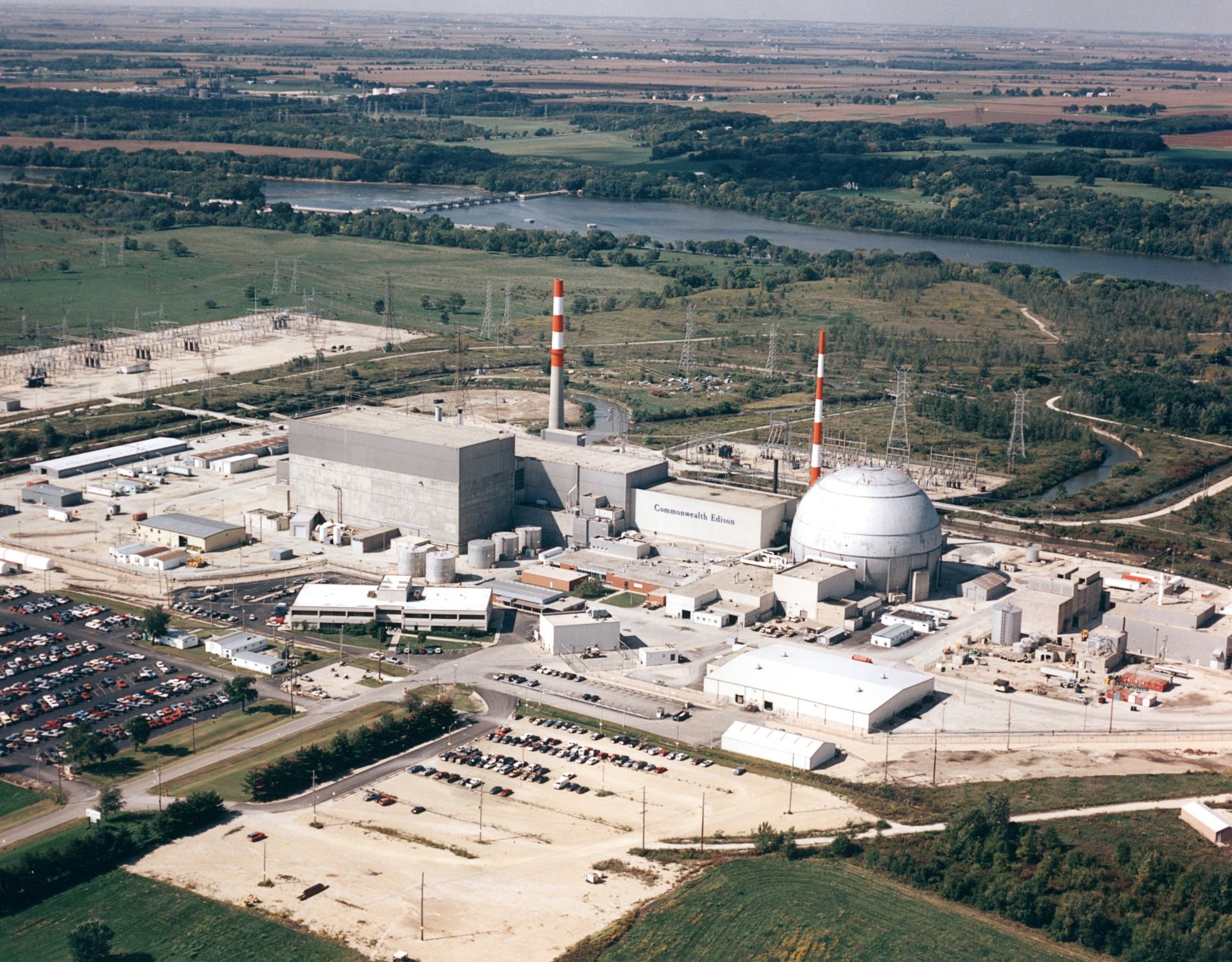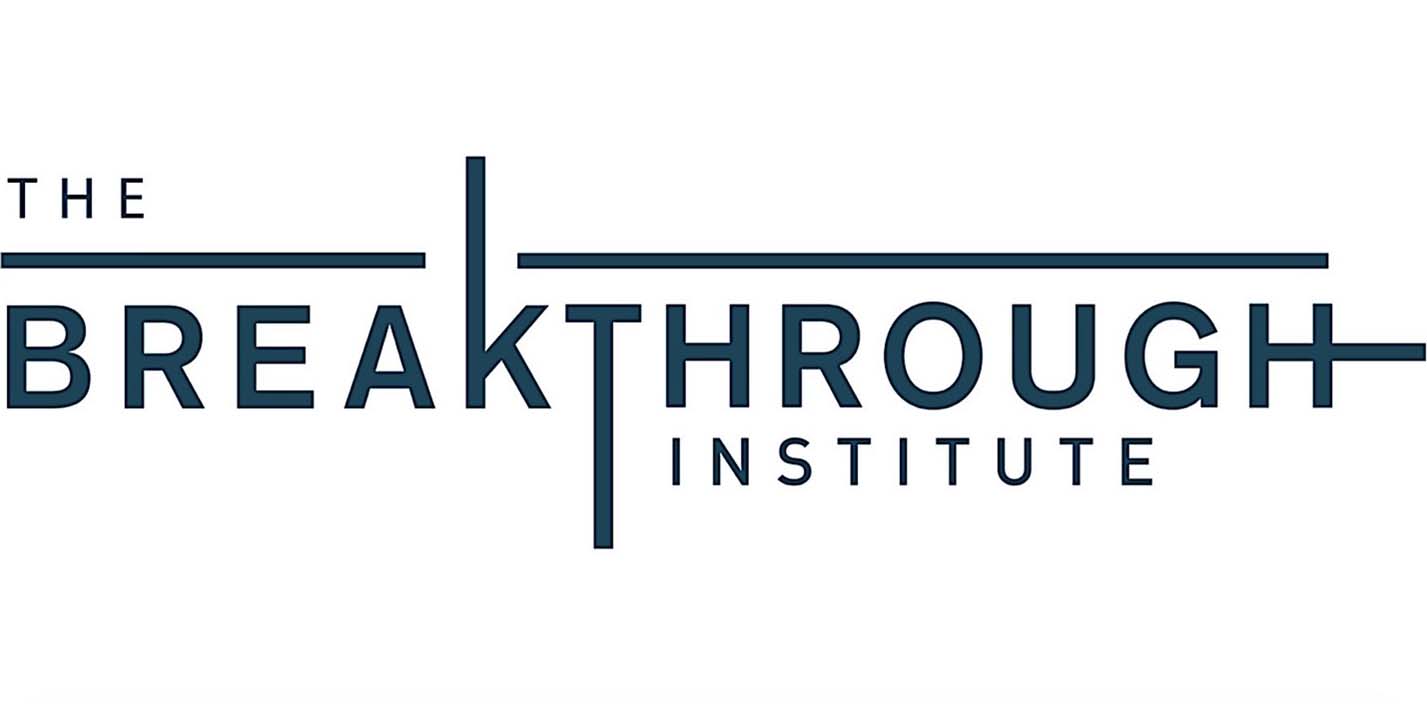Dresden nuclear power plant. (Photo: Constellation Energy)
Constellation Energy has filed with the Nuclear Regulatory Commission for a subsequent license renewal for its Dresden nuclear power plant in Illinois. The extension would allow Dresden to run through 2051.
The filing begins a comprehensive, multiyear review by the NRC. Unit 2 is currently licensed to operate through 2029 and Unit 3 through 2031. The facility’s license was first renewed by the NRC in 2004.
February 17, 2023, 3:03PMRadwaste SolutionsPeter Swift, Michael Apted, Lake Barrett, John Kessler, and Steven Nesbit An electric continuous miner machine cuts out a waste-emplacement panel at the Waste Isolation Pilot Plant salt repository in New Mexico. (Photo: DOE)
Used nuclear fuel and high-level radioactive wastes are by-products of nuclear energy production and other applications of nuclear technology, and the consensus approach to disposing of those wastes safely is to encapsulate them and emplace them in stable geologic formations (geologic repositories) where they will be isolated from people and the environment for very long periods of time. The federal government has established environmental standards for waste isolation that any proposed geologic repository must meet.
In July 2021, the American Nuclear Society established a special committee to consider possibilities for revised generic environmental standards for disposal of spent nuclear fuel and high-level radioactive waste in the United States. The committee developed a number of recommendations, which are contained in a draft report that was to be issued in February for review and comment by stakeholders. The draft report can be found on the ANS website, at ans.org/policy/repositorystandard/.
The committee’s draft recommendations are based on two underlying assumptions. First, that the relevant legislative framework for regulation defined in the Nuclear Waste Policy Act (NWPA) remains unchanged. Specifically, it is assumed that the Environmental Protection Agency will be charged with promulgating environmental standards for disposal and that the Nuclear Regulatory Commission will be charged with reviewing applications for disposal facilities using licensing requirements and criteria consistent with the EPA standards. Second, that existing generic disposal standards will be updated or replaced.
The TRIGA Mark II nuclear research reactor. (Photo: University of Texas)
The Nuclear Regulatory Commission has conducted a special inspection at the University of Texas’s TRIGA Mark II nuclear research reactor in Austin to evaluate the use of improper fuel. The inspection was ordered following a notification from the University of Texas—Austin to the NRC that the research reactor had been operating for several months with two fuel elements that were not licensed for the reactor.
The molten salt test loop at ACU’s NEXT Lab. (Photo: Jeremy Enlow/SteelShutter)
The Nuclear Regulatory Commission has announced that it will review a construction permit submitted by the Nuclear Energy eXperimental Testing (NEXT) Laboratory at Abilene Christian University for the lab’s planned molten salt research reactor (MSRR). The NRC informed Rusty Towell, director of the NEXT Lab and professor in ACU’s Department of Engineering and Physics, about its acceptance of the construction permit review in a November 18 letter. The NEXT Lab had submitted the construction permit application on August 15; it was the first-ever university application for an advanced research reactor. On October 14, they provided the NRC with additional information about instrumentation and controls. (Nuclear News featured an article about the NEXT Lab and the MSRR in the November issue.)
Highlights from Chairman Hanson’s visit with the ANS student section at UPRM. (Photos: NRC/Twitter)
The American Nuclear Society student section at the University of Puerto Rico—Mayagüez (UPRM) recently welcomed Christopher T. Hanson, chairman of the U.S. Nuclear Regulatory Commission. While at UPRM, Hanson met with graduate students conducting nuclear-related research, as well as with deans, professors, and other university officials. He also delivered a speech, “Preparing to Regulate the Nuclear Technology of the Future.”








 The Nuclear Regulatory Commission has opened registration for its
The Nuclear Regulatory Commission has opened registration for its 





